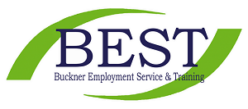Service definition adapted from the OOD Provider Manual

Pre-Employment Transition Services are provided to students with disabilities (SWD) who have been determined eligible or are potentially eligible for Vocational Rehabilitation (VR) services. Services are used to improve the transition of students from school to postsecondary education and/or an employment outcome. Pre-Employment Transition Services include the following five (5) different sub-categories: 1) Counseling on Post-Secondary Opportunities, 2) Job Exploration Counseling, 3) Instruction in Self-Advocacy, 4) Work Based Learning, and 5) Workplace Readiness Training.
1) Counseling on Post-Secondary Opportunities
Counseling of postsecondary opportunities includes the exploration of training options available after graduation. Service may be provided one-on-one or in a group setting. Group activities may include education on enrollment in comprehensive transition or postsecondary educational programs at institutions of higher education such as: course offerings, career options, the types of academic and occupational training needed to succeed in the workplace, and post-secondary opportunities associated with career fields or pathways. Individual services may include advising students and parents or representatives on academic curricula, college application and admissions processes, completing the Free Application for Federal Student Aid (FAFSA), and resources that may be used to support individual student’s success in education and training, which could include disability support services.
2) Job Exploration Counseling
Job Exploration Counseling is utilized to assist students with disabilities (SWD) and includes information regarding in-demand industry sectors and occupations, as well as non-traditional employment, labor market composition, administration of vocational interest inventories, and identification of career pathways of interest to the students. Service may be provided one-on-one or in a group setting in a classroom or community setting. Service may be provided in school or the community and shall include discussion of the student’s vocational interest inventory results, in-demand occupations, career pathways, and local labor market information that applies to those particular interests.
3) Instruction in Self-Advocacy
Instruction in self-advocacy is utilized to assist students with disabilities to learn skills needed for greater independence. Service may be provided one-on-one or in a group setting. Group services may include generalized classroom lessons in which students learn about their rights, responsibilities, and how to request accommodations or services and supports needed during the transition from secondary to post-secondary education and/or employment. During these lessons, students may share their thoughts, concerns, and needs, in order to prepare them for peer mentoring opportunities with individuals working in the area(s) of their interest. Individual opportunities may be arranged for students to conduct informational interviews or mentor with educational staff such as principals, nurses, teachers, or office staff; or they may mentor with individuals employed by or volunteering for employers, board associations, or organizations in integrated community settings. Students may also participate in youth leadership activities offered in educational or community settings.
4) Work-Based Learning
Work-Based Learning is utilized for a student with a disability to experience and gain knowledge about the workplace. These services are those that would be most beneficial to an individual in the early stages of employment exploration during the transition process from school to post-school activities, including employment. Service may be provided one-on-one or in a group setting in a classroom or community setting. Work-Based Learning experiences in a group setting may include coordinating school-based job training, informational interviews to research employers, work-site tours to learn about necessary job skills, job shadowing, and/or mentoring opportunities in the community. Individual services may include work experiences to explore the student’s area of interest through paid and unpaid internships, apprenticeships, short-term employment, fellowships, or on-the-job training in the community.
5) Workplace Readiness Training
Workplace Readiness Training is utilized to improve social and independent living skills. Workplace readiness training may include programming to develop social skills and independent living, such as communication and interpersonal skills, financial literacy, orientation and mobility skills, job-seeking skills, understanding employer expectations for punctuality and performance, as well as other “soft skills” necessary for employment. Service shall include discussion of the following Conduct areas:
∙ Professional Skills: Workplace communication, written and verbal, with peers/supervisors, mean and how to demonstrate appropriate work ethics, teamwork, networking, health/safety, basic customer service, business organization/hierarchy, job seeking skills and understanding employer expectations;
∙ Personal Skills: Social and inter-personal skills development, enthusiasm/attitude, integrity, personal responsibility, time management, self-management, and life-long learning;
∙ Internet: Safety and self-representation online, social media and potential impact on job searches, how to conduct online job searches, filling out online applications, and telephone etiquette; and
∙ Independent Living: Financial literacy and management, budgeting, hygiene/dress, community access, transportation, household management, Orientation & Mobility Service may be provided in a classroom setting or be tailored to an individual’s needs in an education or community setting.
